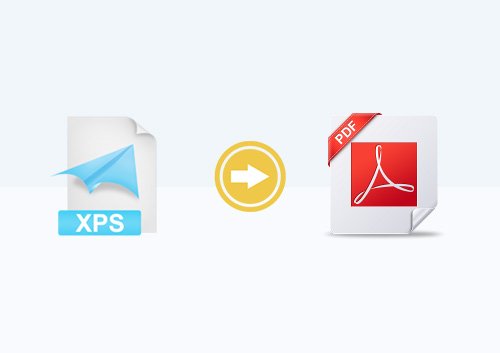The data science profession is rapidly gaining momentum as a vibrant and high-potential avenue for professionals. The data science career trajectory holds immense promise. With the ongoing digitization of businesses and industries, there is an escalating need for proficient data scientists, signifying a bright future in this field.
With advancements in AI and ML technologies, data scientists can tackle more complex problems and make predictions with accuracy. Moreover, data ethics and privacy are gaining prominence, emphasizing the need for responsible data handling. This is leading to more data science jobs. In this blog, we will discuss a suitable roadmap that one can follow to make a career in this field.
Understanding the Role of Data Scientists
- Data scientists are modern-day detectives. They use their analytical skills to extract valuable insights from the vast information that surrounds us. They are quite popular in the tech domain. There are ample data science jobs for freshers in India. So, if you possess the right skills, you will easily land a job.
- The role of a data scientist is to make sense of data. Their work isn’t just about numbers; it’s about translating data into real-world solutions.
- They tackle a wide range of challenges, from predicting customer behavior to optimizing supply chains.
- In healthcare, they help identify disease trends, while in finance, they predict market trends. Their versatility knows no bounds, as they bring their expertise to every sector imaginable.
- To excel in this role, data scientists need a multidisciplinary skill set. They must be proficient in mathematics and statistics to make sense of data’s underlying patterns. Programming skills, often in languages like Python or R, are essential for data manipulation and modeling.
- Moreover, domain expertise is crucial. Data scientists need to understand the context of the data they’re working with. This is just a gist of the requirements, let us have a look at the data science career path.
Data Science Career Path
Data Science careers involve several steps; below we have provided the most crucial ones.
1. Formal Education:
Education serves as the cornerstone of your Data Science career, equipping you with all of the knowledge and skills needed. Depending on your current educational background and desired career goals, select an educational path that best meets them.
Most recruiters who post a job requirement for their company in the field of Data Science are looking for candidates who have a bachelor’s degree in a related area like computer science, statistics, mathematics, or engineering as a starting point. Many data scientists also hold master’s or Ph.D. degrees to qualify them for advanced roles and research positions.
- Bootcamps: Data science boot camps offer intensive hands-on training in a shorter amount of time than traditional degrees, making them a popular option for career changers or those wanting to advance quickly in their field.
- Certifications: Obtaining relevant certifications, such as those offered by Microsoft (e.g., Microsoft Certified: Azure Data Scientist Associate) or Google (e.g., Google Cloud Professional Data Engineer), can enhance your credentials.
2. Gain Skills
Gaining the necessary skills is crucial to becoming a data scientist. Some of the important skills a data scientist should possess are:
- Mathematics and Statistics
Before you can begin your journey, it is essential to have an excellent foundation. Mathematics, such as linear algebra, calculus, and probability form the foundation of Data Science. These mathematical tools allow you to comprehend the fundamental concepts that underlie data analysis. Alongside mathematics, statistics is a second important element that helps you understand the statistical distributions of information, infer conclusions, and then verify your findings.
- Programming Proficiency
A good programming proficiency is crucial to succeed in Data Science. Programming languages such as Python or R are the most popular options in data analysis and manipulation of data in addition to machine learning. You’ll write code in order to manipulate data, create models, and display the outcomes.
- Data Handling
Effective data handling skills typically include SQL for data querying and manipulation to extract important insights from structured datasets. Visualizing information using Matplotlib, Seaborn, or Tableau tools can also assist in communicating complex details effectively.
3. Investigate Foundational Concepts
As your knowledge advances, you’ll begin to explore more fundamental aspects of data science. Cleaning data should become your top priority – identifying and correcting any discrepancies to ensure your studies rely on accurate information.
- Exploratory Data Analysis (EDA) is the process of analyzing data to discover obscure patterns, underlying trends, and irregularities. It’s similar to investigation, where you sort through the data, visualize it, and ask questions that result in practical insight.
- Machine Learning is the centerpiece of a variety of data science projects. One should have a knowledge of how to create as well as train models that are able to predict outcomes, categorize data, and provide recommendations.
- Hadoop and Spark let you manage and process huge datasets efficiently. Deep Learning is one of the subsets of machine learning. It is focused specifically on neural networks as well as their use to solve complex problems such as speech and image recognition.
4. Covering Advanced Topics
Once you’ve grasped the basics, you’ll need to explore more specific areas.
- Natural Language Processing (NLP) allows for understanding and manipulating human language with algorithms.
- Time Series Analysis equips you to understand and forecast time-dependent data which is common in fields such as finance, weather forecast, and analysis of stock markets.
- Reinforcement Learning investigates how machines learn by interfacing with their surroundings, which makes it useful for robotics, gaming, or autonomous technology.
5. Practical Experience
Projects and practical learning through experience are fundamental. They range from predicting the behavior of customers to enhancing supply chains. They are crucial for creating a portfolio that shows off your skills to prospective employers.
Contributing to open-source projects within the field of data science is a different way to be recognized and gain knowledge. It shows your dedication to the area and lets you work with colleagues from all over the world.
6. Learn and Participate
Participate in conferences, workshops, and webinars to keep up-to-date with the latest developments in methods, tools, and techniques. Industry events are a great way to hear from experts, get exposure to new technologies, and expand the professional networks of your organization.
Continuous learning and apprehension are essential to data science. The field is rapidly evolving and new tools and techniques are being developed often. Becoming curious, researching new technologies, and adjusting to changes will help you stay up-to-date and competitive.
7. Tracking Your Career’s Path
With your expertise sharpened and your portfolio expanded, it’s time to map your career’s direction. A good resume that showcases your talents, accomplishments, projects, and other achievements can be your first move. Make sure your resume is customized to show your experience is in line with the positions you’re targeting.
Search for jobs in data science through job posts, corporate websites, and social media. There are tons of data science jobs in Delhi, Bangalore, and Mumbai. You can find a job anywhere and not only in metropolitan cities. Just write cover letters that demonstrate your enthusiasm for the field and comprehension of the job and the industry.
8. Prepare for Interviews
Be prepared for interviews that are technical which typically involve programming challenges, machine-learning questions, as well as cases of data science. Knowing the most typical interview formats and practicing by answering questions from a sample can increase your confidence.
Be aware that learning in the field of data science is an ongoing journey. As you progress you can consider an area of specialization like data analysis and machine learning engineering. Being up-to-date with new techniques and methods is vital to remain competitive in your field.
9. Ethics and Responsibilities
Data science is not only about crunching numbers. It is also a source of ethical responsibility. Knowing the impact of your work on people as well as society is vital. Security and privacy are essential and ensuring that you comply with regulations such as GDPR as well as HIPAA is crucial.
10. Career Development
As you advance through your professional career, you should consider specialization in your areas of interest or new fields in data science. You may decide to concentrate on computer vision, natural language processing, or deep reinforcement learning depending on your interest and the market demand.
Seek mentorship from experienced data scientists or professionals in your chosen field. Mentorship can provide invaluable guidance, helping you tackle challenges, set goals, and make informed career decisions.
Collaboration is another key to success. Working on projects with colleagues and peers exposes you to diverse perspectives and approaches, fostering creativity and innovation.
Conclusion
It is clear that the Data Science career path is an exciting path with a constant learning process as well as hands-on exploration. There are many opportunities to utilize your creative and analytical skills across various sectors. If you follow this roadmap to explore this ever-changing field you will definitely succeed.



